11 books on science Bill Gates thinks everyone should read
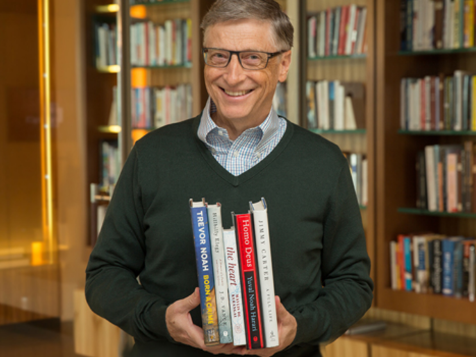
Your support helps us to tell the story
From reproductive rights to climate change to Big Tech, The Independent is on the ground when the story is developing. Whether it's investigating the financials of Elon Musk's pro-Trump PAC or producing our latest documentary, 'The A Word', which shines a light on the American women fighting for reproductive rights, we know how important it is to parse out the facts from the messaging.
At such a critical moment in US history, we need reporters on the ground. Your donation allows us to keep sending journalists to speak to both sides of the story.
The Independent is trusted by Americans across the entire political spectrum. And unlike many other quality news outlets, we choose not to lock Americans out of our reporting and analysis with paywalls. We believe quality journalism should be available to everyone, paid for by those who can afford it.
Your support makes all the difference.For decades, Bill Gates made billions in technology. Now he's spending that money on fighting disease and climate change.
It's no wonder the man loves science.
Over the years, Gates has recommended a number of science-related books to the public. Some deal with the environment, others with the cosmos, and others with stopping tiny biological invaders.
Here are some of his favorite titles.
'Thing Explainer: Complicated Stuff in Simple Words' by Randall Munroe

Munroe, the mastermind behind the xkcd web comic, published a book in 2015 that explained pieces of modern technology using only the 1,000 most common words in the English language.
Gates said that it's a "brilliant concept" because if "you can't explain something simply, you don't really understand it." One of Gates' favorite explanations is why microwaves ("radio boxes") cook frozen foods unevenly:
When you put iced food in a radio box, after a while, parts of it start to turn to water. But since radio boxes are really good at heating water, those parts start to get hot really fast. They can even get so hot they start turning to air--before all the ice is even gone!
'The Gene: An Intimate History' by Siddhartha Mukherjee
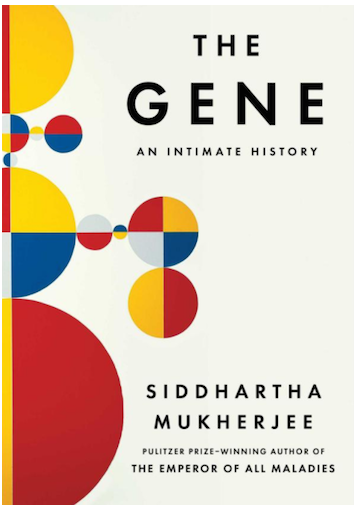
Genome science can hardly be considered a topic of mainstream interest, but Gates says Mukherjee manages to capture its relevance to people's daily lives. He seeks to answer big questions concerning our personalities and what makes us, us.
"Mukherjee wrote this book for a lay audience, because he knows that the new genome technologies are at the cusp of affecting us all in profound ways," Gates wrote.
Mukherjee is what Gates calls a "quadruple threat." He's a practicing physician, teacher, researcher, and author.
'The Grid: The Fraying Wires Between Americans and Our Energy Future' by Gretchen Bakke
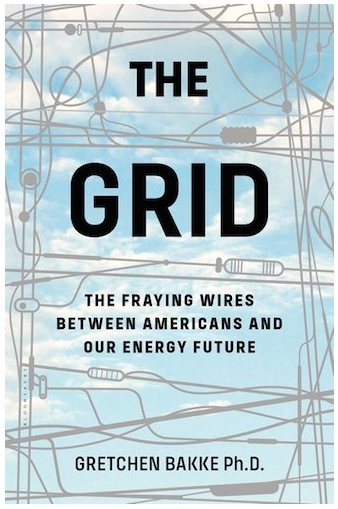
"The Grid" is a perfect example of how Bill Gates thinks about book genres the way Netflix thinks about TV and movies.
"This book, about our aging electrical grid, fits in one of my favorite genres: 'Books About Mundane Stuff That Are Actually Fascinating,'" he wrote in 2016.
Growing up in the Seattle area, Gates' first job was writing software for a company that provided power to the Pacific Northwest. He learned just how vital power grids are to everyday life, and "The Grid" serves as an important reminder that they really are engineering marvels.
"I think you would also come to see why modernizing the grid is so complex," he wrote, "and so critical for building our clean-energy future."
'Seveneves' by Neal Stephenson
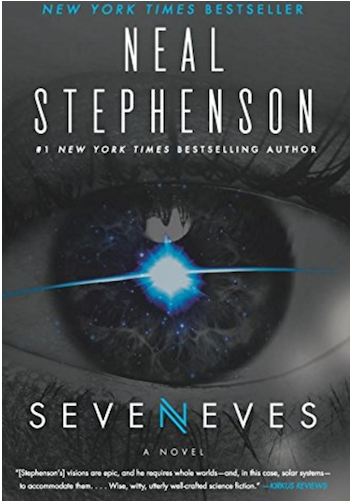
After a science-fiction dry spell of more than a decade, in 2016 Gates picked up "Seveneves" on a friend's recommendation, and he says he's grateful for it. "The plot gets going in the first sentence, when the moon blows up," he wrote.
But that's only the beginning. The world soon learns the entire species is doomed: In two years' time, a cataclysmic meteor shower will destroy all life on the pale blue dot. It's up to humanity to send as many spacecraft into orbit as possible with the hope of escaping the apocalypse.
"You might lose patience with all the information you'll get about space flight," Gates wrote, "but I loved the technical details."
'The Fever: How Malaria Has Ruled Humankind for 500,000 Years' by Sonia Shah
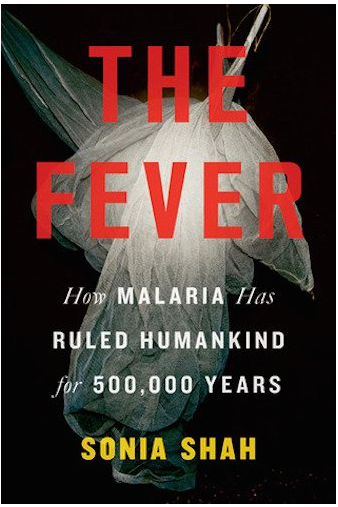
Malaria has become one of the Gates Foundation's top priorities over the last several years. The disease claims about 430,000 lives per year, while more than 220 million people carry the disease worldwide.
Gates calls Shah's book "probably the best choice" if you only have time to read one book on the subject.
"The book was published in 2010, so it's not totally up to date (most notably, we've made progress with rolling out bed nets since then)," Gates wrote in 2014. "But it's a great overview of malaria, its impact, and the solutions to it."
'Sapiens: A Brief History of Humankind' by Yuval Noah Harari
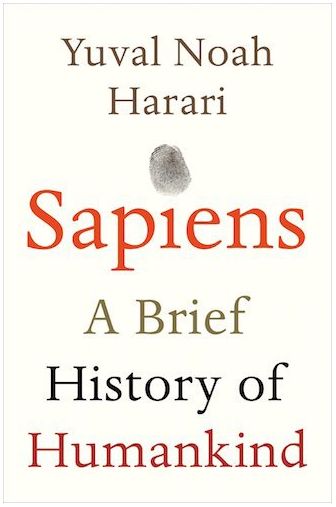
We weren't always the only species of human being on Earth. Roughly 100,000 years ago, there were actually six varieties of people, but homo sapiens were the only ones who made it to today. How come?
"Both Melinda and I read this one," Gates said, "and it has sparked lots of great conversations at our dinner table. Harari takes on a daunting challenge: to tell the entire history of the human race in just 400 pages."
But Harari doesn't dwell on the past. He looks toward a future in which genetic engineering and artificial intelligence make our definition of "human" even more fluid.
From Gates: "I would recommend Sapiens to anyone who's interested in the history and future of our species."
'Homo Deus' by Yuval Noah Harari
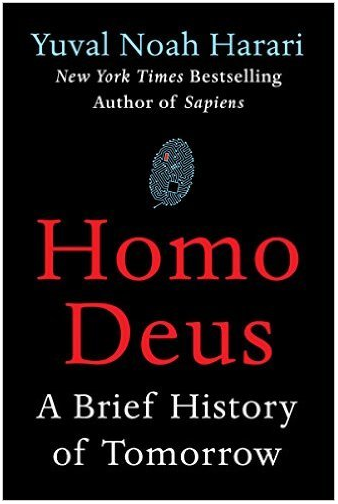
Harari's most recent book makes him a repeat appearance on Gates' summer reading list. "Homo Deus" is the follow-up book to "Sapiens," as it discusses what might come of societies as they evolve into the future.
"So far, the things that have shaped society -- what we measure ourselves by -- have been either religious rules about how to live a good life, or more earthly goals like getting rid of sickness, hunger, and war," Gates wrote. "What would the world be like if we actually achieved those things?"
'Infections and Inequalities: The Modern Plagues' by Paul Farmer
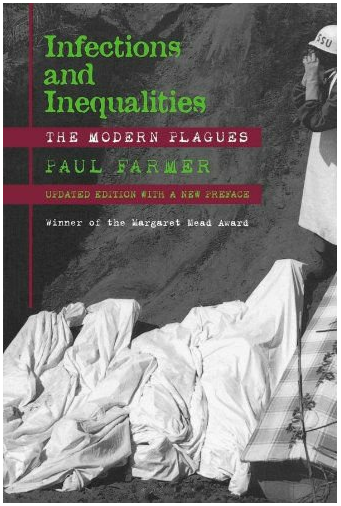
One of the world's premier epidemiologists, Paul Farmer helped bring sustainable healthcare to millions in Haiti. Gates has called him "one of the most impressive people I've had the honor of getting to know."
Though it came out more than 15 years ago, "Infections and Inequalities" has stuck with Gates because it reminds the public how much deadlier diseases like AIDS, tuberculosis, and malaria can be to people without access to vaccines or treatment.
"In this book he really opens your eyes to the vast differences between the health of the rich and the health of the poor," Gates wrote in 2014.
'House on Fire: The Fight to Eradicate Smallpox' by Bill Foege
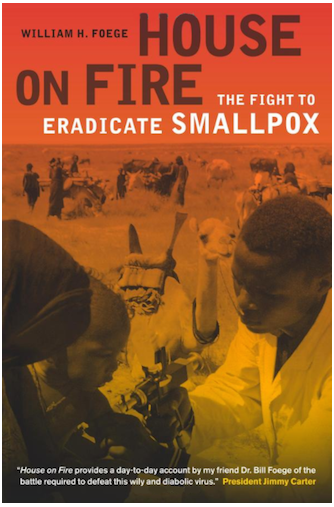
Foege is widely credited as the driving force behind the eradication of smallpox in the 1970s. In a 2014 blog post, Gates remarked on Foege's mentorship to both him and Melinda as they were getting their start in philanthropy.
Foege's 2012 book recounts how the eradication began, delves into Foege's personal and professional life as an epidemiologist, and shares stories of people affected by the disease.
"This book gives you a great view from the front lines of that battle," Gates wrote.
'Sustainable Materials With Both Eyes Open (Without the Hot Air)' by Julian Allwood and Jonathan Cullen

On the heels of the 2015 Paris climate summit, Gates wrote on his blog that "Sustainable Materials With Both Eyes Open" struck him because so few environmental books talk directly about "how we make stuff."
"The question boils down to this," Gates wrote. "How can we meet the growing demand for materials without destroying the environment?"
The book is a dense, diagram-filled read about the value in lengthening the shelf-life of everyday products by using materials that can be repurposed and reused.
"We can't go on using materials the way we have been for the past 150 years," Gates wrote, "but fortunately, we don't have to."
'The Vital Question' by Nick Lane
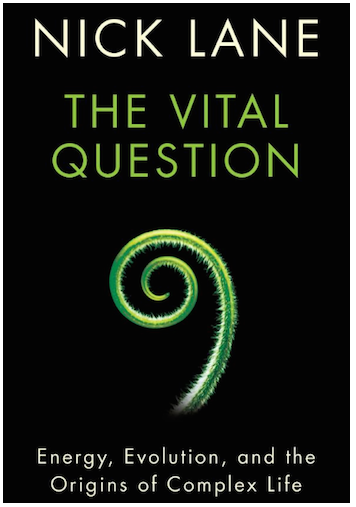
Nick Lane might not be a household name, but Gates want to change that.
"Nick is one of those original thinkers who makes you say: More people should know about this guy's work," he said. "He is trying to right a scientific wrong by getting people to fully appreciate the role that energy plays in all living things."
The book seeks to resolve unanswered questions about how life formed on earth, and raises thoughtful questions about where solutions for disease may come from.
"Even if the details of Nick's work turn out to be wrong," Gates said, "I suspect his focus on energy will be seen as an important contribution to our understanding of where we come from."
• I've studied happiness for years — here are the 12 best pieces of advice I'm giving my daughter
• Everything you need to know about Gal Gadot, the badass actress who stars in 'Wonder Woman'
• These are the 9 highest-paid Victoria's Secret models
Read the original article on Business Insider UK. © 2015. Follow Business Insider UK on Twitter.
Join our commenting forum
Join thought-provoking conversations, follow other Independent readers and see their replies
Comments